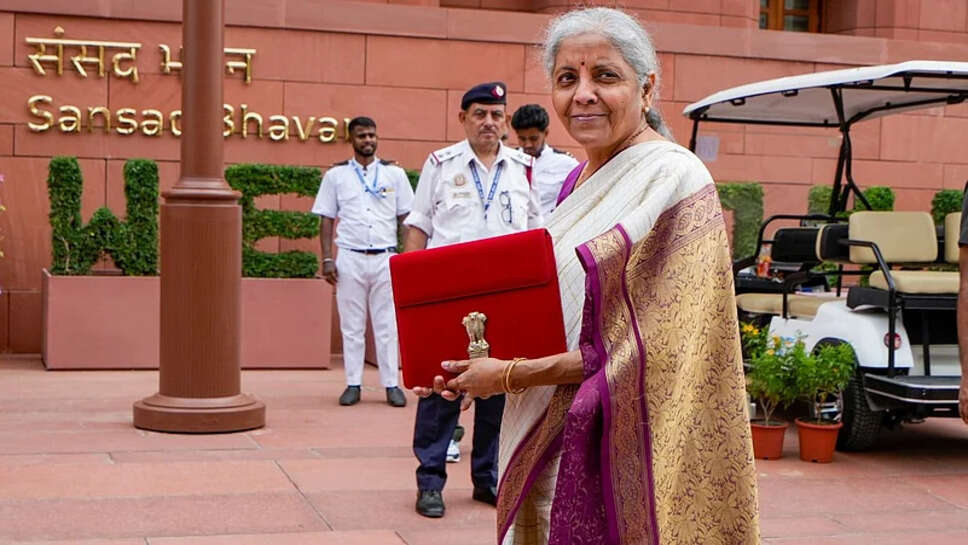Sitharaman Projects 2.8 Million Jobs in GCCs by 2030, Fueling India’s Tech Talent Growth

Employment by GCCs in India Expected to Go Up to 2.8 Million by 2030: Nirmala Sitharaman
India’s burgeoning digital economy and its expanding pool of skilled professionals are setting the stage for a dramatic surge in employment opportunities within Global Capability Centres (GCCs), according to Union Finance Minister Nirmala Sitharaman. Speaking at a recent industry event, Sitharaman projected that employment within GCCs in India is expected to rise to 2.8 million by the year 2030—signaling the sector’s rising importance as a pillar of India’s economic future.
The announcement underscores India's growing role as a hub for high-value services delivered to global enterprises. From software development and data analytics to finance, legal processing, and R&D, GCCs in India are evolving beyond traditional back-office functions to become integral engines of innovation and strategic decision-making for multinational companies.
What Are GCCs?
Global Capability Centres, formerly known as captive centres or Global In-House Centres (GICs), are offshore units established by multinational corporations (MNCs) to provide a range of services such as IT support, operations, finance, customer service, research, and more. India has become the preferred destination for such centres due to its rich talent base, competitive costs, mature IT ecosystem, and favorable regulatory landscape.
Over the last two decades, GCCs in India have transformed from cost centers to capability hubs. Today, many of them are deeply involved in product design, automation, cybersecurity, and AI-led innovation—areas once reserved exclusively for headquarters in the West.
India’s GCC Landscape: A Snapshot
As of 2024, India is home to over 1,600 GCCs that collectively employ close to 1.9 million professionals. These centres span multiple industries—from BFSI (Banking, Financial Services, and Insurance) and pharmaceuticals to telecom, aerospace, and retail.
According to Sitharaman, this number is not just growing—it’s evolving. "The next phase of GCCs in India is not about volume, but value," she said. "We are seeing global corporations choosing India not just for talent availability, but for strategic expertise and innovation leadership."
The projection of 2.8 million jobs by 2030 reflects a 47% increase over current figures—signaling strong, sustained growth across Tier-1 and emerging Tier-2 cities.
Key Drivers Behind the Growth
Several structural and economic trends are contributing to the exponential growth of employment in the GCC sector:
1. Digital Transformation in Global Enterprises
The post-pandemic world has accelerated the digital transformation agendas of global businesses. As organizations seek to leverage AI, big data, cloud technologies, and automation, their reliance on offshore capability centres with deep tech expertise is growing. India’s tech talent pool makes it a prime destination.
2. Shift from Cost Arbitrage to Capability
Global firms are increasingly shifting from a mindset of labor arbitrage to one of innovation and value creation. Indian GCCs are no longer seen as extensions of HQ, but as innovation partners capable of leading new business models, designing products, and even owning revenue-generating initiatives.
3. Government Support and Reforms
The Indian government has played a key role in shaping a supportive ecosystem through initiatives like Digital India, Startup India, and the push for Ease of Doing Business. Regulatory relaxations around data protection, foreign investment, and labour laws have helped ease the entry and expansion of GCCs.
4. Emergence of Tier-2 Cities as GCC Hotspots
Cities like Pune, Hyderabad, Coimbatore, Chandigarh, and Ahmedabad are becoming attractive locations for GCC expansion due to lower operational costs, improving infrastructure, and abundant local talent. This geographic diversification will be crucial in achieving the 2030 employment target.
5. Upskilling and Talent Readiness
India’s tech workforce is rapidly adapting to the evolving needs of global corporations. With targeted skilling in areas like cloud computing, data science, cybersecurity, and DevOps, the country is preparing a future-ready workforce capable of handling complex global mandates.
Sector-Wise Expansion Outlook
The next wave of GCC-led hiring is expected to span across multiple domains:
-
Technology & Software Engineering: AI/ML, blockchain, SaaS product development
-
Financial Services: Quant modeling, risk analytics, compliance, and regulatory tech
-
Healthcare & Life Sciences: Medical device innovation, digital health platforms
-
Retail & E-commerce: Consumer analytics, personalization engines, logistics tech
-
Manufacturing & Auto: Smart factories, digital twins, and supply chain optimization
Each of these sectors will see an uptick in high-skill roles—from software architects and cybersecurity analysts to AI researchers, product managers, and data scientists.
Challenges That Need Addressing
While the growth story is compelling, several challenges still need to be addressed to fully realize the employment potential of 2.8 million by 2030:
-
Attrition and Talent Retention: With intense competition for skilled talent, attrition levels in GCCs remain high. Firms need to offer not just salaries, but career growth, learning ecosystems, and work-life balance.
-
Regulatory Predictability: Ensuring a stable, predictable policy environment for data protection, cross-border taxation, and work permits is essential to instill long-term confidence among MNCs.
-
Infrastructure Bottlenecks: Reliable internet connectivity, urban congestion, and real estate costs in top cities remain concerns that could impact expansion.
-
Diversity and Inclusion: Building inclusive workspaces with equitable hiring practices will be key, especially in emerging Tier-2 locations.
Future Outlook: India as a Strategic Partner
Nirmala Sitharaman’s remarks also hinted at a future where India is not just a workforce destination but a strategic partner for global corporations. With the right mix of public policy, private investment, and skilling efforts, India’s GCC ecosystem could emerge as the world’s most powerful knowledge engine.
As companies increasingly turn to India for next-gen capabilities, the GCC model itself is expected to evolve—becoming more decentralized, domain-focused, and innovation-led.
The finance minister concluded her address by emphasizing the importance of collaboration across stakeholders. “Government, industry, academia, and global partners must work together to ensure India remains the preferred choice for capability centres of the future.”
Final Word
The projected increase to 2.8 million jobs by 2030 is more than just a number—it represents a seismic shift in how the world views India’s role in global value chains. As GCCs evolve into powerhouses of innovation and strategic leadership, India has the opportunity to not only create millions of high-quality jobs but also shape the very future of global enterprise.
From Bangalore to Bhubaneswar, from fintech to pharma, the new India is being built—one global capability at a time.
